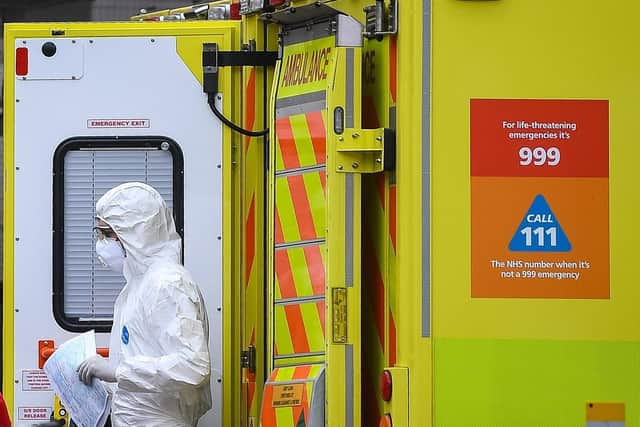Spike in depression and anxiety following coronavirus lockdown
In the new study, conducted by academics from the University of Sheffield and Ulster University, researchers found on March 24 – the day after Prime Minister Boris Johnson announced that Britons were to stay at home – 38 per cent of participants reported increased feelings of depression while 36 per cent said they felt more anxious.
This compared with 16 per cent reporting significant depression and 17 per cent reporting significant anxiety the day before the announcement.


Advertisement
Hide AdAdvertisement
Hide AdRichard Bentall, professor of clinical psychology at the University of Sheffield and leader of the study, said the results showed that the public was concerned about the pandemic.
“We are seeing initial evidence of a rise in psychological symptoms in the population but, nonetheless, the overall picture that emerges so far is of a nation that is well informed about Covid-19, taking appropriate action and resilient," he said.
He said the rates of reported mental health problems are higher but not "dramatically different," to those observed in previous, similar surveys.
But added those who have already taken a financial hit are more likely to feel anxious or depressed.
Advertisement
Hide AdAdvertisement
Hide AdThe flash study, which surveyed 2,000 people from 23-27 March, was launched in a bid to understand the mental health impacts of the coronavirus outbreak and promised results “within days”.
Those on low incomes also suffered greater levels of anxiety and depression, according to the study, while 32 per cent of those surveyed said they had already lost income because of the outbreak.
The team said they will survey the same group again in the coming months.
The study was launched after a number of charities warned of a mental health crisis during the Covid-19 shutdown.
Advertisement
Hide AdAdvertisement
Hide AdMental health charity Sane called on the government to do more to highlight the risks associated with prolonged periods of isolation.
Sane CEO Marjorie Wallace said increased loneliness could lead to poorer health outcomes and ultimately premature deaths.
“Loneliness can be a killer. A study of 300,000 people found that it is associated with a 29 per cent increase in mortality," she said.
“In other words, it is a significant factor in poorer health outcomes and premature death and we need to balance these risks. Psychiatric services need to be on red alert for patients who are deteriorating.”
Additional reporting by agencies
